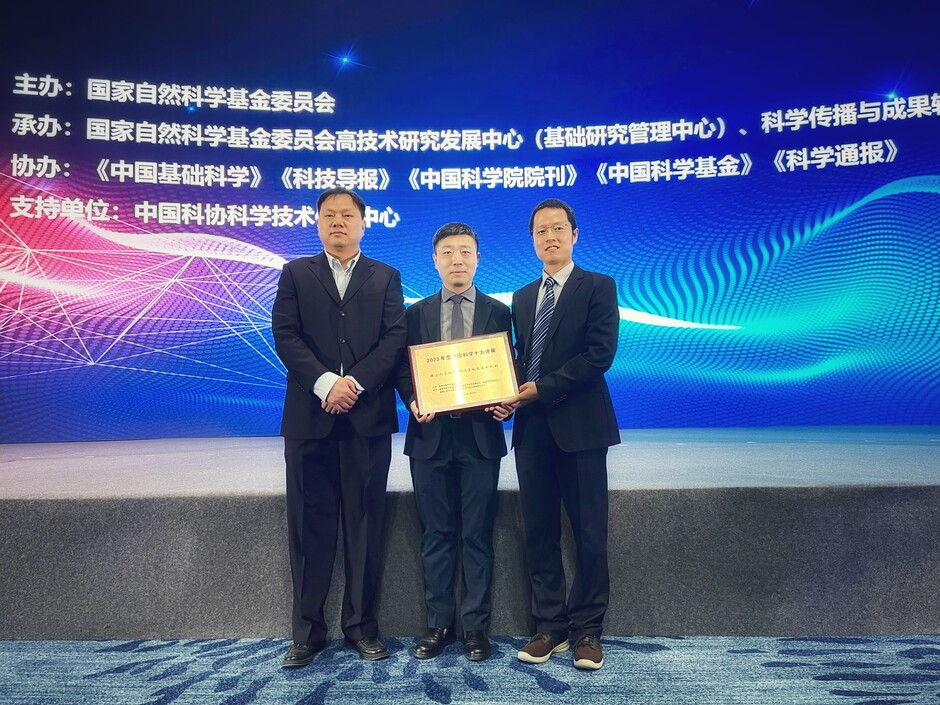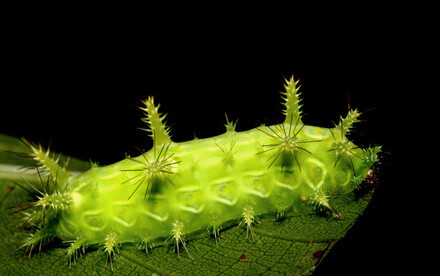29 Feb 2024
Joint Study by HKU and HKUST on DNA Replication Initiation Selected as One of Top 10 Scientific Advances in China for 2023

HKUST and HKU collaborate on DNA replication initiation, recognized as one of Top 10 Scientific Advances in China for 2023
A joint study revealing a new mechanism on DNA Replication Initiation, led by The Hong Kong University of Science and Technology (HKUST), The University of Hong Kong (HKU) and other institutions, has been selected as one of the Top 10 Scientific Advances in China for 2023, making it the only research project from Hong Kong to be included in the list.
Organised by the National Natural Science Foundation of China, the "Top 10 Scientific Advances in China for 2023" is jointly hosted by the High Technology Research and Development Center and the Center for Science Communication and Achievement Transformation, with the support of five journals, namely China Basic Science, Science & Technology Review, Bulletin of the Chinese Academy of Sciences, Science Foundation in China, and Science Bulletin. These 10 advancements were judiciously selected by thousands of experts from the Chinese Academy of Sciences, Chinese Academy of Engineering, and other institutions. The objective is to promote frontier and innovative research progress in China and encourage more researchers to engage in basic research. By deepening public understanding, concern and support for science, the event also seeks to foster a national climate favourable to scientific exploration.
This prestigious accolade was awarded to the team that includes Prof. ZHAI Yuanliang, Assistant Professor from the HKU School of Biological Sciences, Prof. DANG Shangyu, Assistant Professor from HKUST Division of Life Science (LIFS), and Prof. TYE Bik-Kwoon, Senior Member of HKUST Institute for Advanced Study (IAS), in recognition of their groundbreaking discovery of a new mechanism of the human pre-replication complex (Pre-RC) in regulating DNA replication initiation. The atomic resolution structure of the human Pre-RC provides detailed critical information for devising novel and effective anticancer strategies with the ability to selectively kill cancer cells.
“This recognition is a great honour for our research team and shows that our work is highly respected in the scientific community,” said Prof. Zhai Yuanliang from HKU. “Our knowledge of how DNA is copied is still quite limited. While previous studies in a type of yeast have given us some insights, there's still so much we don't know about how this process happens in human cells. Since there's still a lot to discover in this field, every new development in understanding how DNA is copied by our replication machines is a big step forward. The knowledge we gain from our research will not only deepen our understanding of the basic processes of life, but it may also provide important insights into diseases like cancer and help us find new ways to treat them.”
Prof. Dang Shangyu from HKUST said, "Enhancing the specificity of chemotherapy drugs has always been a crucial consideration in developing anticancer compounds. We are delighted that our research breakthrough has received national recognition. Notably, all of the project’s structural work, including cryo-sample preparation, cryo-EM data collection and processing, was conducted at the HKUST Biological Cryo-EM Center. We are immensely grateful to the Lo Kwee Seong (LKS) Foundation for their generous support in establishing this state-of-the-art facility at HKUST, which has already facilitated several breakthroughs and discoveries in our research since its establishment in 2019. We look forward to continuing our investigations in this field and forging new hopes for cancer treatment."
Research Background
DNA is the blueprint of life. It is present in every cell. Its duplex structure in complementary notations informs how it is replicated. It must be first separated into single strands and copied precisely. The history of DNA replication study can be traced back to 1950s when Prof. Arthur KORNBERG discovered an enzyme system in Escherichia coli extracts, which ultimately earned him a Nobel Prize. However, due to the lack of high-resolution structures, progress in DNA replication research lagged behind those achieved in the study of other macro molecular machines, such as the ribosome or the RNA polymerase.
Professor Tye Bik-Kwoon, who has joined HKUST since 2011, overcome these hurdles initially by collaborating with the Peking University team led by Professor GAO Ning, as well as Prof. Zhai, who obtained his PhD from HKUST before becoming a HKUST-IAS junior fellow. Together they made a series of groundbreaking findings, including determining the cryo electron microscopy (cryo-EM) structures of the yeast MCM2-7 double hexamer (DH) and the yeast origin recognition complex, which were published in Nature in 2015 and 2018. These studies laid the foundation for the present work on the structure of the human pre-replication complex when the HKUST cryo-EM facility became available and when Prof. Dang joined HKUST in 2019.
As one of the Top 10 Scientific Advances in China for 2023, this research determined at 2.59 Å the cryo-EM structure of the human Pre-RC, which is formed by the loading of the MCM2-7 DH onto origin DNA. This structure provides a clear understanding of how the MCM2-7 complex destabilises DNA, leading to the initial unwinding of the DNA duplex precisely at the juncture of the two coupled MCM2-7 hexamers. Additionally, the team discovered that the MCM2-7 DH complexes are loaded onto DNA at numerous sites throughout the human genome. Importantly, these sites are mutually exclusive with loci of active transcription to minimise interference between DNA replication and transcription. Moreover, when the initial open structure is disrupted, the MCM2-7 DH complexes fail to assemble onto DNA, resulting in a complete suppression of DNA replication initiation. The study provides a detailed understanding of the high-resolution structure and mechanism of the human Pre-RC. This knowledge can be leveraged to develop non-toxic anticancer drugs in the future. The research was published in the top international scientific journal Cell in January, 2023. (click here for link)
About The University of Hong Kong
Founded in 1911, The University of Hong Kong (HKU)( www.hku.hk) is the first and oldest institution of higher education in Hong Kong. For over a century, the University has dedicated itself to creating knowledge, providing education, and serving society. Today, HKU has an established worldwide reputation for being a research-led comprehensive University with ten Faculties. HKU has a proud record of academic recognition in research through honours and awards received from both local and international bodies. The University strives to attract and nurture outstanding scholars through excellence and innovation in its research and knowledge exchange activities. Its research areas cover a wide range of issues with the aim of benefitting industries, businesses and the community. Regarded as Asia’s Global University, HKU brings together experts from diverse disciplines, partnering with prestigious universities and research institutes around the world. It has 51 academics named on the list of “Highly Cited Researchers 2023” from Clarivate, ranking 13th globally among all institutions. HKU is in pursuit of teaching and learning excellence in a broad range of disciplines and professions. With the holistic design of the curricula, along with award-winning teaching and learning resources and support, students at HKU can fully develop intellectual and personal strengths while gaining lifelong learning opportunities to contribute to the community.
About The Hong Kong University of Science and Technology
The Hong Kong University of Science and Technology (HKUST) (https://hkust.edu.hk/) is a world-class research intensive university that focuses on science, engineering and business as well as humanities and social science. HKUST offers an international campus, and a holistic and interdisciplinary pedagogy to nurture well-rounded graduates with global vision, a strong entrepreneurial spirit and innovative thinking. Over 80% of our research work were rated “Internationally excellent” or “world leading” in the Research Assessment Exercise 2020 of Hong Kong’s University Grants Committee. We were ranked 2nd in Times Higher Education’s Young University Rankings 2023, and our graduates were ranked 29th worldwide and among the best from universities from Asia in Global Employability University Ranking 2023. As of September 2023, HKUST members have founded 1,747 active start-ups, including 9 Unicorns and 13 exits (IPO or M&A), generating economic impact worth over HK$ 400 billion. InvestHK cited QS World University Rankings by Subject 2021 to demonstrate the performance of five world’s top 100 local universities in several innovation-centric areas, among which HKUST ranked top in four engineering and materials science subjects.







